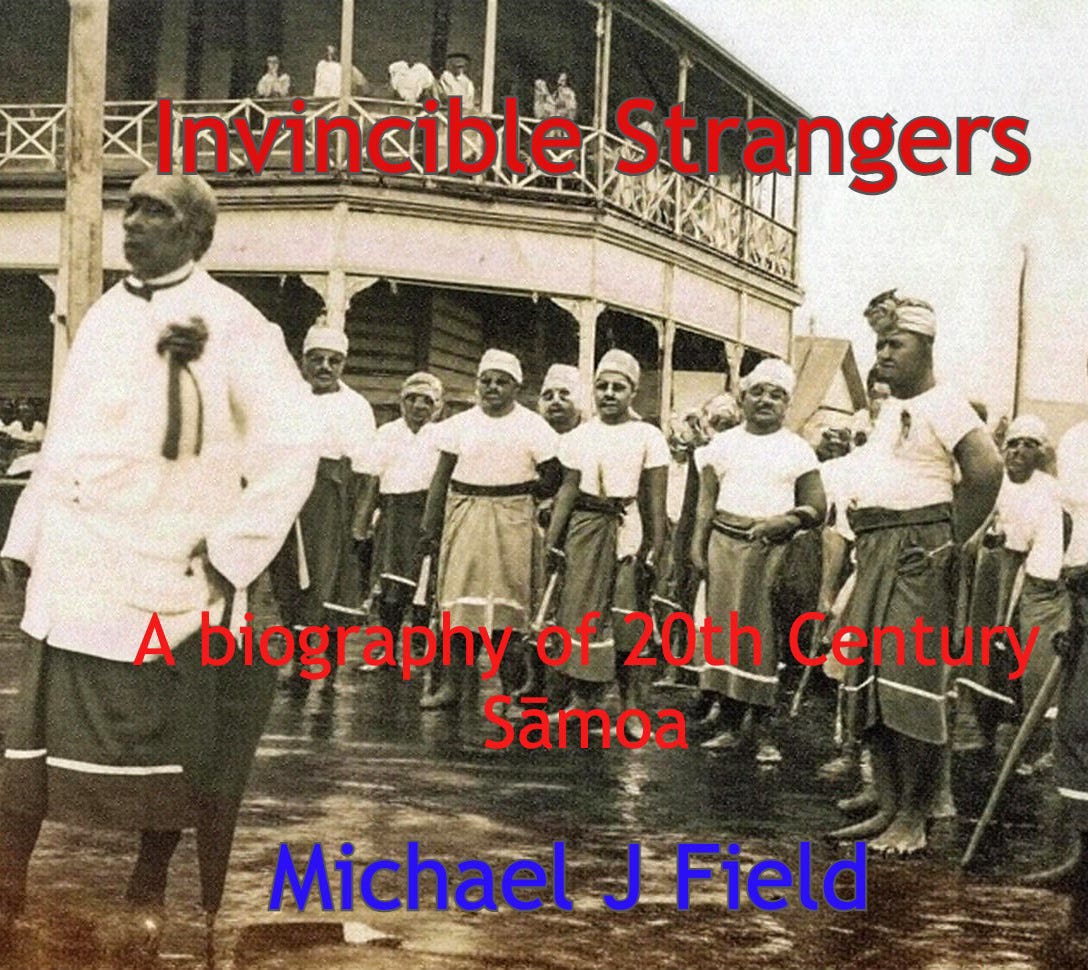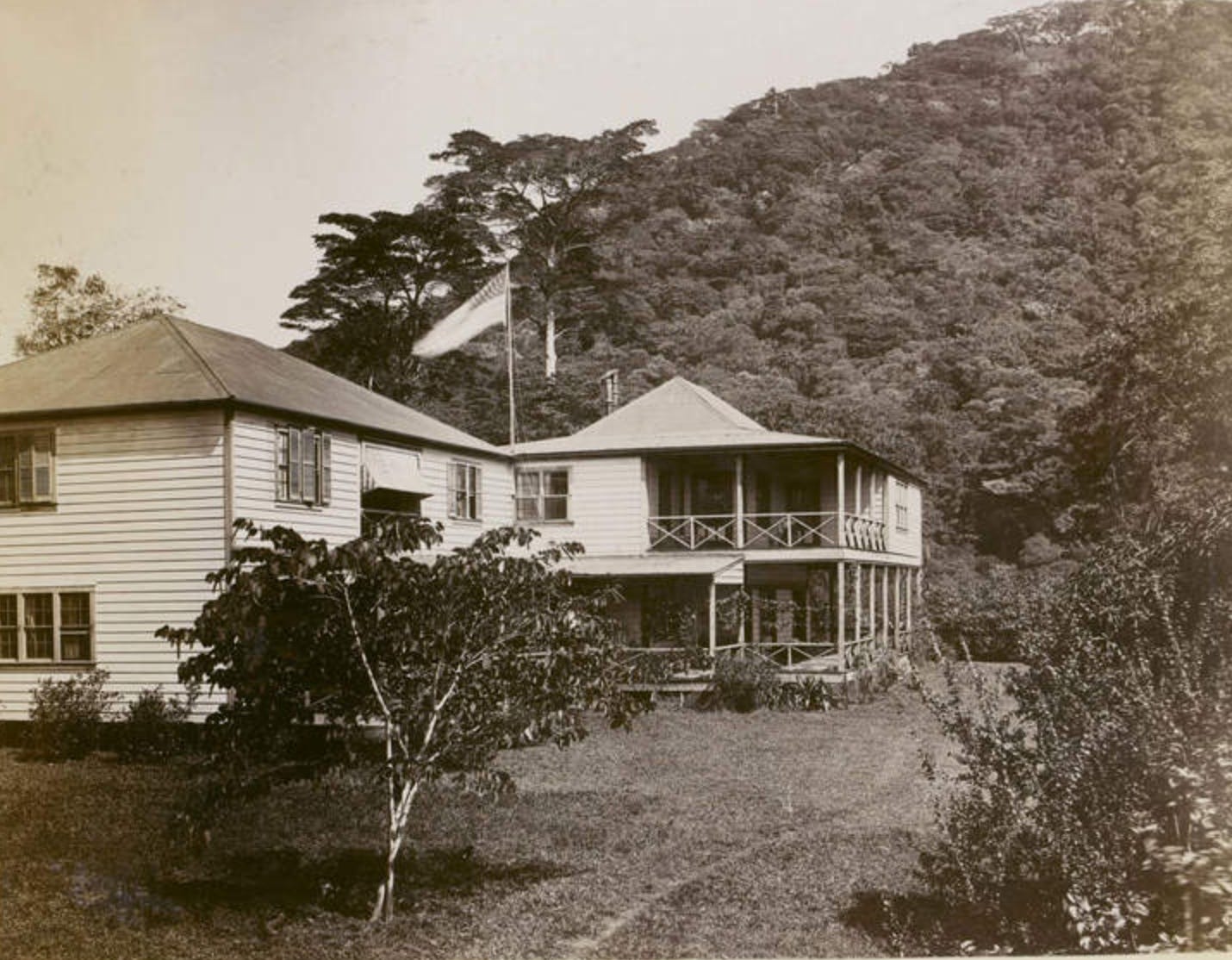Experimental naval shells hit Vailima
Invincible Strangers 12 Chapter 3.2
Experimental naval shells hit Vailima
On 8 April, Malietoa scouts went up Mt Vaea to Stevenson’s grave and looking down on his old Vailima house, they could see it occupied by Mata’afa forces.
Fresh Malietoa soldiers from Tutuila, shipped in by Royalist, joined the assault on Vailima where they took its occupants by surprise. They were driven out of a fort they had built.
‘The Malietoa army,’ Ross reported, ‘instead of occupying the forts out of which they had driven the enemy, returned to their more comfortable quarters at Mulinuu, and next day the rebels had re-occupied their position at Vailima. They even pushed their outposts further down within a mile of the town, felling large trees and digging a trench in the road to prevent the advance of the field guns.’
On 12 April Porpoise steamed east of Āpia where they landed Gaunt’s 60-strong brigade at a Marist mission station. They were attacked by a hundred men. Fighting lasted an hour; Mata’afa forces lost six men, Gaunt one. Six kegs of beef and tinned meat, as well as pigs, were seized. A village (Ross names it as ‘Lamlee’ but today it does not exist as such) was burned.
The Anglo-Americans returned to the scene of the April Fool Day battle to fight on a more modest scale. Ross: ‘The Mataafa warriors cut off the head of a young Malietoa soldier and got it away.’
On 15 April Porpoise, as Ross put it, ‘having nothing particular to do’ left Āpia with Gaunt and a hundred of his men, sailed up toward Magia.
‘We are on what Britishers term “a punitive expedition.” That means that the rebels are to be punished humanely, if possible, by burning, and boat destroying – more seriously if they oppose her British Majesty’s navy.’ They fired a six-inch shell into a village: ‘It burst a little way inland; the white smoke rose dome-shaped above the tall palms, and drifted slowly westward in the soft morning breeze of the tropics. It was not meant to do anything in particular – just a polite message from the Mistress of the Seas to the rebels to pack up and go; and none the less effective because of its unexpectedness.’ Ross was poetic about burning villages: ‘It is all part of the white man’s burden, but it has got to be done, and done well, else the lesson will be entirely lost on these Samoan rebels – “half devil and half child.”’
On 17 April another attack was made on Vailima, restored to Mata’afa forces after Malietoa forces walked away.
Keep reading with a 7-day free trial
Subscribe to Michael Field's South Pacific Tides to keep reading this post and get 7 days of free access to the full post archives.



